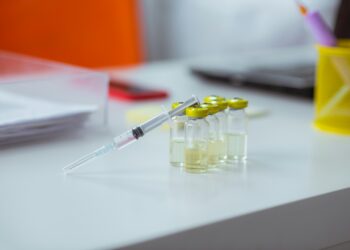According to Hypertension Australia, an astonishing 80% of strokes are preventable through effective management and monitoring of high blood pressure.
This silent threat, often going unnoticed, can lead to severe health events by weakening blood vessel walls, causing clots, or inducing heart irregularities. In response, La Trobe University’s innovative research shines a light of hope, introducing a groundbreaking approach using placenta cells to counteract the extensive consequences of hypertension.
The Promise of Placenta Cells in Hypertension Management
In a significant scientific advancement, a team from La Trobe University and the Hudson Institute has unveiled the potential of placenta cells in treating high blood pressure. This research, spearheaded by Dr. Michael De Silva, expands upon earlier studies in stroke recovery and has successfully passed human safety trials.
Published in Scientific Reports, the study shows that these cells, when infused post-stroke, target the brain’s affected area, diminishing inflammation and nerve cell death. This finding also applies to hypertension, with the treatment proving effective in reducing blood vessel inflammation.
Importantly, hypertension, which affects a considerable portion of the Australian adult population, is a primary cause of strokes and heart attacks and can eventually lead to vascular dementia. The research team, including Dr. De Silva, Dr. Quynh Nhu Dinh, and Professor Chris Sobey, discovered that placenta cells, obtained post-caesarean, could alleviate these effects.
Dr. De Silva emphasises the alarmingly low control rates of blood pressure in Australia and highlights the potential of these cells to target arterial inflammation. This offers a novel approach to mitigating the risks of cardiovascular diseases and cognitive impairments.
As this research progresses, it shows great promise in developing new therapies to reduce vascular and brain damage caused by high blood pressure, signifying a substantial advancement in medical science and patient care.



















